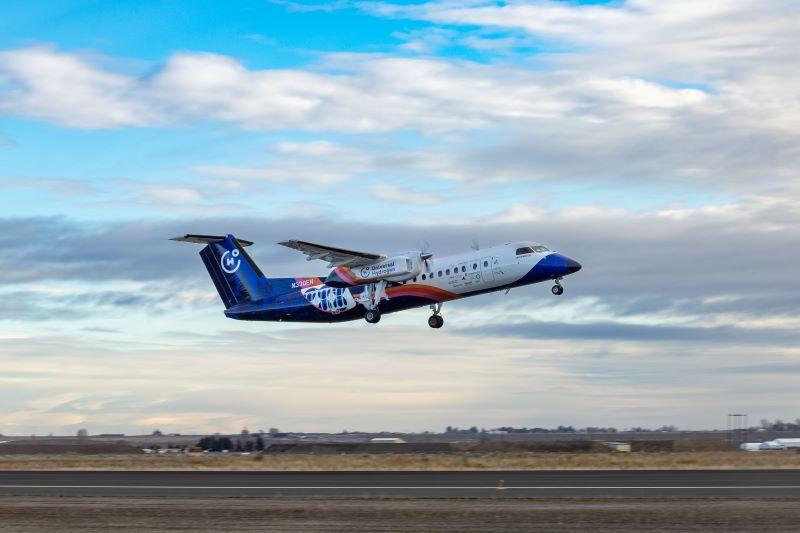
Credit: UH
MOSES LAKE, Washington—Universal Hydrogen’s De Havilland Canada Dash 8-300 flying testbed has become the largest hydrogen-electric aircraft to fly following a successful first flight from here on March 2. Configured with a megawatt-scale hydrogen fuel cell propulsion system, the converted aircraft...
Subscription Required
This content requires a subscription to one of the Aviation Week Intelligence Network (AWIN) bundles.
Schedule a demo today to find out how you can access this content and similar content related to your area of the global aviation industry.
Already an AWIN subscriber? Login
Did you know? Aviation Week has won top honors multiple times in the Jesse H. Neal National Business Journalism Awards, the business-to-business media equivalent of the Pulitzer Prizes.
